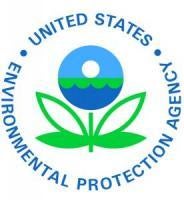The U.S. Environmental Protection Agency (EPA) today released its annual enforcement results, showing significant environmental and public health protections achieved – a reduction of 2.2 billion pounds of air, water and land pollution, as well as 4.4 billion pounds of hazardous waste, and $252 million in civil and criminal penalties levied – while also focusing on enforcement efforts that reduce smaller amounts of pollution but have substantial health impacts in communities.
“Enforcement plays a vital role in protecting communities from harmful pollution,” said Cynthia Giles, assistant administrator for EPA’s Office of Enforcement and Compliance Assurance. “We are using vigorous enforcement, as well as innovations in monitoring and transparency, to reduce pollution violations, protect and empower communities and focus on the environmental problems that matter most.”
FY 2012 results include:
- Sustained and focused enforcement attention on serious violators of clean drinking water standards has resulted in improvements in compliance. The number of systems with serious violations has declined by more than 60 percent in the past three years as a result of combined federal and state enforcement work, protecting people’s health through safer drinking water.
- More than 67 percent of large combined sewer systems serving people across the country are implementing clean water solutions to reduce raw sewage and contaminated stormwater and more are underway. EPA is working with communities to design integrated solutions to these water quality problems, and incorporating innovative and cost effective green infrastructure to save money and achieve multiple community benefits.
- EPA is bringing criminal prosecutions where criminal activity threatens public health, like failing to use required pollution control equipment or knowingly violating pollution rules resulting in death or serious harm or falsifying pollution information. See a case example in Louisiana.
- EPA is advancing environmental justice by incorporating fenceline monitoring, which requires companies to monitor their air emissions and make that data available public, into settlements, ensuring that local residents have access to critical information about pollution that may be affecting their community. EPA also secured $44 million in additional investments through settlements for supplemental environmental projects that benefit impacted communities. See an oil refinery case example.
- EPA is increasing transparency to use the power of public accountability to help improve environmental compliance. EPA’s 2012 enforcement actions map provides information about violators in communities. EPA’sstate dashboards and Clean Water Act pollutant loading tool provides the public with information about local pollution that may affect them and allows the public to take a closer look at how government is responding to pollution problems.
More information about EPA’s FY 2012 enforcement results:
http://www.epa.gov/enforcement/data/eoy2012/index.html




 />i
/>i

